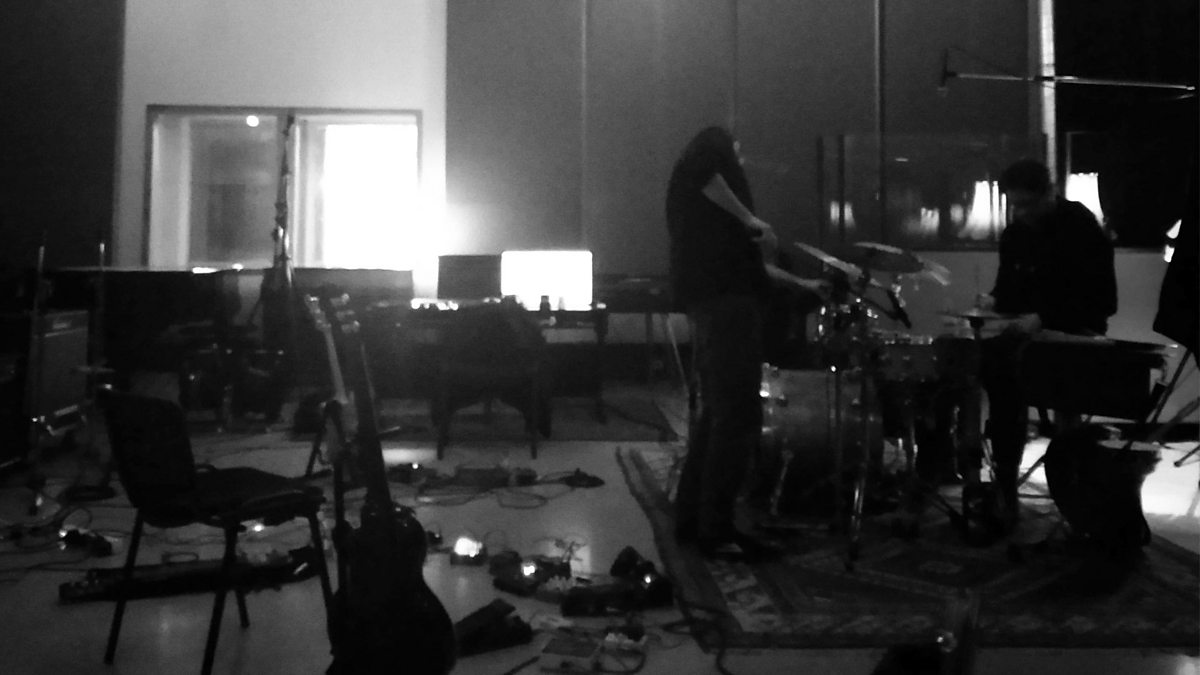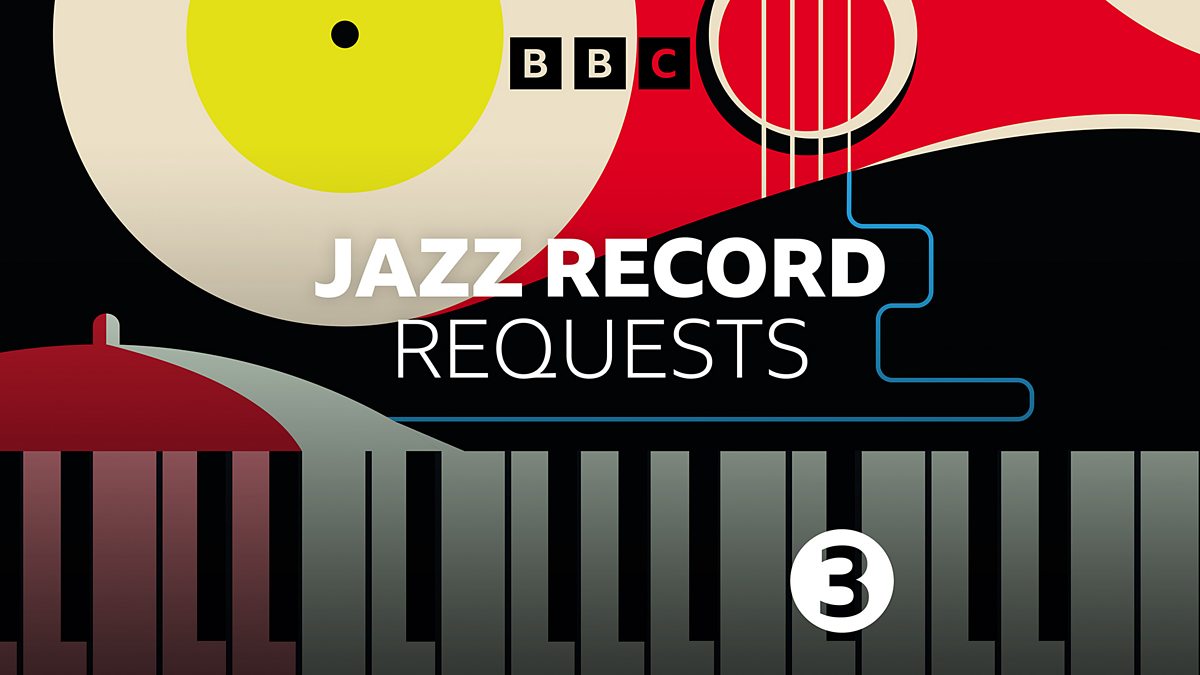Sat 11 July
5pm - J to Z
Kevin Le Gendre presents a home session by harpist Brandee Younger and bassist Dezron Douglas. Ali Shaheed Muhammad shares some of the music that inspires him, and bassist William Parker introduces one of his latest compositions.
Younger and Douglas have asociations with Ravi Coltrane; Muhammed with the jazz-referencing hip-hop outfit A Tribe Called Quest.
12midnight - Freeness
Corey Mwamba with the sounds of Greek trio TUSK, who make nostalgic pieces that draw on psychedelia, noise and electronic music, and a performance by pioneering US electronic and computer music composer George Lewis of his own music, recorded in March at Borealis, a festival for experimental music in Bergen. And Italian band Anatrofobia return with a new release and a new member, vocalist Cristina Trotto Gatta.
Friends may have noticed that George Lewis (erstwhile AACM trombone player-turned-electronics specialist, if I may call him that) also has couple of new works up for performance on the preceding New Music Show. That makes two programmes on the trotto - or, as Jean-Paul Sartre might say, we are being gatted for choix.
Take no notice of Nazim Comunale's comment, mentioned in the link script!
Sun 12 July
4pm - Jazz Record Requests
Alyn Shipton with requests across the jazz spectrum, today featuring recordings by Horace Silver, John Coltrane, Donald Byrd and Betty Carter.
Next Tuesday's Afternoon Concert at 2pm features German composer Bernd Alois Zimmermann's 1954 Trumpet Concerto, subtitled Nobody Knows the Trouble I See. Zimmermann (1919-1972) was an important figurehead in German postwar music, a powerful, deep-thinking eminence behind the scenes where the new movement away from aesthetic baggage then thought redolent of that country's immediate fascist past was heading into experimental music, whose influence would impinge on avant-garde jazz, improv and psychedelia, here, in Europe and across The Pond. The Trumpet Concerto drew consequentially on twelve-tone serialism and jazz - an early forerunner of Third Stream music - and among Zimmermann's friends and musical associates of the following decade would be such leading representatives of German free jazz as Albert Mangelsdorff, Gunther Hampel, Alex Schlippenbach and Peter Brotzmann, all of whom would form ongoing relationships with British jazz musicians and others both on the Continent and in America. Zimmermann's extraordinary 1959 anti-fascist, anti-war opera Die Soldaten, a worthy successor to Berg's operas Wozzeck and Lulu, was in conceptual terms of unprecedented complexity, linking politico-philosophical ideas with new compositional techniques involving serialism, electronics, collage, free jazz and improv trans-symbiotically, with multiply juxtaposed plots running in simultaneity, and it has thus far (to my knowledge at any rate) proved beyond adequate presentation in live performance, though it has been tried. A truly visionary, omni-prescient nightmare.
Just thought I'd mention that!
For reasons offered elsewhere I am posting this a day earlier than usual. A quick perusal through Radio 3 schedules reveals nothing of particular interest to jazzbos; that said, if I find anything else mentionable I'll post details separately.
5pm - J to Z
Kevin Le Gendre presents a home session by harpist Brandee Younger and bassist Dezron Douglas. Ali Shaheed Muhammad shares some of the music that inspires him, and bassist William Parker introduces one of his latest compositions.
Younger and Douglas have asociations with Ravi Coltrane; Muhammed with the jazz-referencing hip-hop outfit A Tribe Called Quest.
12midnight - Freeness
Corey Mwamba with the sounds of Greek trio TUSK, who make nostalgic pieces that draw on psychedelia, noise and electronic music, and a performance by pioneering US electronic and computer music composer George Lewis of his own music, recorded in March at Borealis, a festival for experimental music in Bergen. And Italian band Anatrofobia return with a new release and a new member, vocalist Cristina Trotto Gatta.
Friends may have noticed that George Lewis (erstwhile AACM trombone player-turned-electronics specialist, if I may call him that) also has couple of new works up for performance on the preceding New Music Show. That makes two programmes on the trotto - or, as Jean-Paul Sartre might say, we are being gatted for choix.
Take no notice of Nazim Comunale's comment, mentioned in the link script!

Sun 12 July
4pm - Jazz Record Requests
Alyn Shipton with requests across the jazz spectrum, today featuring recordings by Horace Silver, John Coltrane, Donald Byrd and Betty Carter.
Next Tuesday's Afternoon Concert at 2pm features German composer Bernd Alois Zimmermann's 1954 Trumpet Concerto, subtitled Nobody Knows the Trouble I See. Zimmermann (1919-1972) was an important figurehead in German postwar music, a powerful, deep-thinking eminence behind the scenes where the new movement away from aesthetic baggage then thought redolent of that country's immediate fascist past was heading into experimental music, whose influence would impinge on avant-garde jazz, improv and psychedelia, here, in Europe and across The Pond. The Trumpet Concerto drew consequentially on twelve-tone serialism and jazz - an early forerunner of Third Stream music - and among Zimmermann's friends and musical associates of the following decade would be such leading representatives of German free jazz as Albert Mangelsdorff, Gunther Hampel, Alex Schlippenbach and Peter Brotzmann, all of whom would form ongoing relationships with British jazz musicians and others both on the Continent and in America. Zimmermann's extraordinary 1959 anti-fascist, anti-war opera Die Soldaten, a worthy successor to Berg's operas Wozzeck and Lulu, was in conceptual terms of unprecedented complexity, linking politico-philosophical ideas with new compositional techniques involving serialism, electronics, collage, free jazz and improv trans-symbiotically, with multiply juxtaposed plots running in simultaneity, and it has thus far (to my knowledge at any rate) proved beyond adequate presentation in live performance, though it has been tried. A truly visionary, omni-prescient nightmare.
Just thought I'd mention that!

For reasons offered elsewhere I am posting this a day earlier than usual. A quick perusal through Radio 3 schedules reveals nothing of particular interest to jazzbos; that said, if I find anything else mentionable I'll post details separately.






Comment